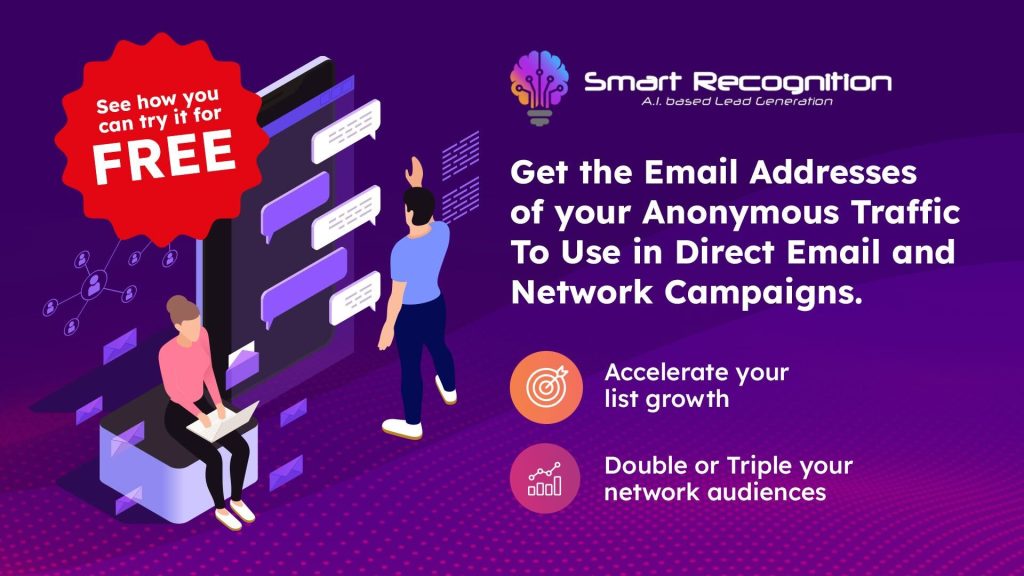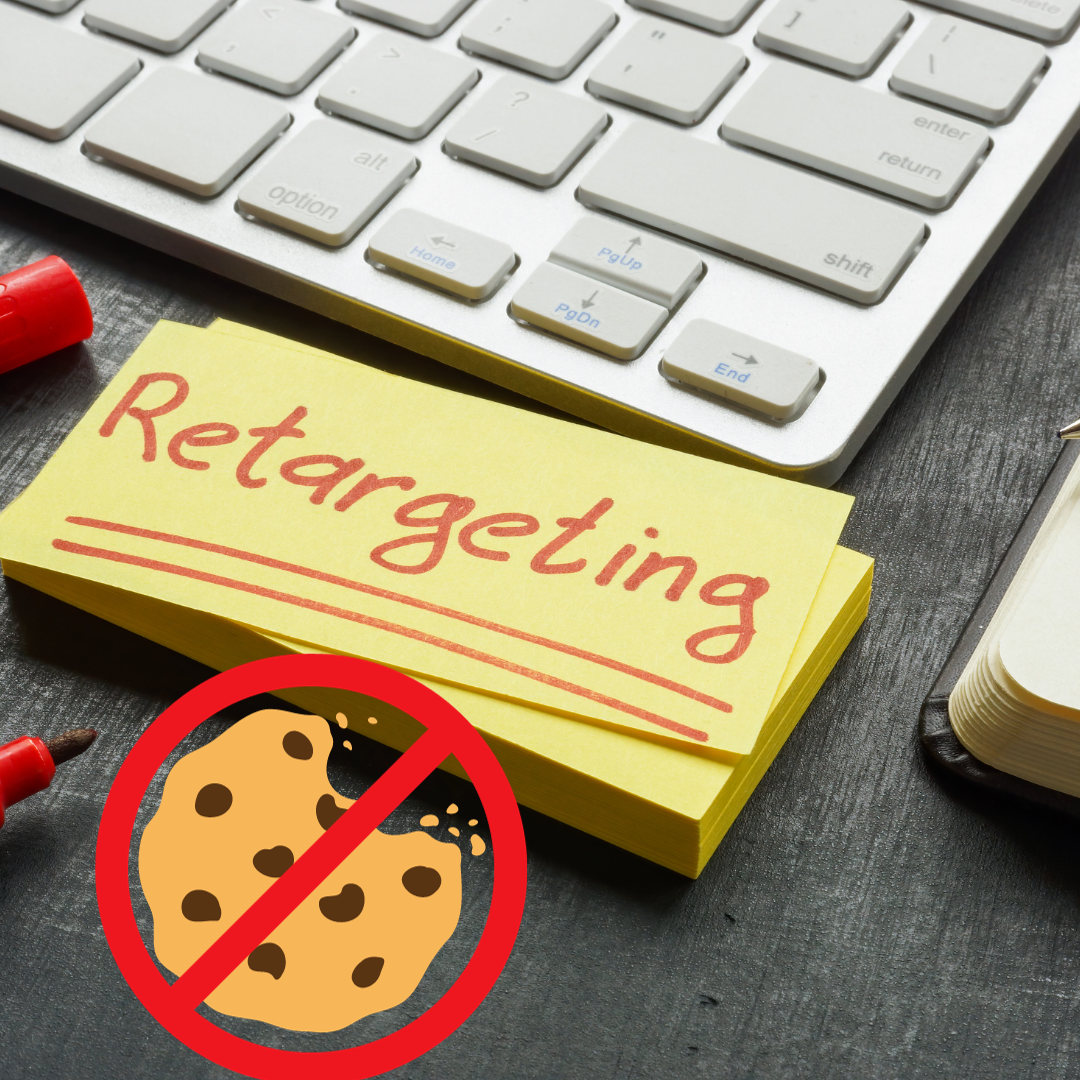Google’s serious, this time, about killing off third-party cookies. The testing phase has officially begun on Chrome – the most popular web browser by a mile! Nearly 65% of the world uses Chrome.
Why does this matter to businesses and advertisers? Your third-party cookie ad strategies could crumble before 2024’s halfway point.
So why wait around hoping for the best? There are alternatives available to third-party cookies right now.
Three takeaways from this article are below then we’ll zoom in on the details.
3 Takeaways from Third-Party Cookies’ Swan Song
- This change will likely water down targeted ad effectiveness for businesses and revenue for advertisers.
- Google claims to want to help the marketing industry with tools to ease the pain of third-party cookie phase-out (*yet Google’s own search advertising may benefit with third-party cookies gone).
- Criteo tested one Google ‘cookie alternative’ and found it 5 times less effective than third-party cookies in targeting users.
*Some tests did show positive results of Google alternatives. However, most have been simulations or small-scale studies. In the real world, that’s shaky research when roughly 3.37 billion people are using Chrome.
Now for the tech elephant in the room…
Is Google Really Concerned about People’s Privacy?
Many experts in the online advertising world are worried about Google having an even greater stranglehold on user data once third-party cookies vanish. Should such a powerful company be in charge of centralized personal data?
After all, Reuters just reported Google settled a $5 billion consumer privacy lawsuit. The amount of the settlement was kept quiet, as Google is keen on keeping things like that private.
The privacy violation, by the way, alleged Google was tracking their customers/users even when the user had set Google’s Chrome browser “to “Incognito” mode and other browsers to a “private” mode.
Do no evil? Hmm…
Still, we wonder if internet users (all of us) are as concerned with privacy as news headlines claim.
Does the Average Joe / Jane Mind Third-Party Cookies Tracking Them?
Of course, when someone switches a browser to private mode, they expect the browser company to honor the request for privacy. We deserve privacy then.
But generally speaking, it’s not obvious that the public (all of us) are deeply concerned with online privacy.
If we were, why does Facebook still have over 3 billion active monthly users?
We don’t even have space – even with infinite scroll – to list all the lawsuits breathing down the neck of Facebook/Meta.
Also, only 9% of Americans say they usually refuse cookies. ~Statista 2024
How the Ad Industry is Approaching the End of Third-Party Cookies
That is the problem. Most marketers are not approaching the problem, not being proactive. Many are being passive, taking a wait-and-see attitude as Google stops allowing third-party cookies in Chrome.
Think about how long third-party cookies have been around. Over 20 years! Basically, since the internet became mainstream. And Google’s going to erase that technology?
A passive approach doesn’t sound wise.
But it’s understandable that not every business or publisher can run tests to see what advertising alternatives will be effective. Again, how do you run meaningful tests on losing Chrome cross-site tracking— something that will affect over 3 billion internet users?
Ok, so it’s hopeless? No…
Two Viable Solutions for Replacing Third-Cookies
We are going to cover two solutions that can keep your marketing and advertising efforts from stumbling once Google pulls the plug on cookies.
One, you may be hearing about for the first time:
#1 Machine Fingerprinting
#2 First-Party Data
Machine Fingerprinting
This is the technology used by our company, Smart Recognition.
It allows us to identify and collect verified email addresses from anonymous website visitors. Our tool is powered by artificial intelligence, which helped us perfect automations such as:
- Sending the verified email addresses to a connected ESP
- Sending verified leads to network audiences
- Streamlining matched leads into email workflows
Another key is our giant database of verified email addresses (over 220 million and growing).
The Smart Recognition platform can easily be your answer to cookies being phased out. You will gain access to up to 40% of your anonymous website visitors. (Our latest case study details how MarketingExamined doubled their subscription rate with our platform).
Now, you do need substantial traffic – around 15k monthly, US audience – to get max results. But the good news is you can test it for 7 days for free after a demo. No simulation. No small-scale test. You can test Smart Recognition in the real world. And it won’t matter if your visitors are using Chrome, Safari, Firefox, etc.
Schedule a free demo so you are not left unprepared when third-party cookies go poof! (✅100% CAN-SPAM & California Consumer Privacy Act (CCPA) Compliant)
First-Party Data
The second alternative to help avoid struggles when Google axes third-party cookies is to increase your first-party data.
You have to go beyond first-party cookies. That basic info is helpful, sure.
Still, you must be proactive in gathering extra first-party data.
Below are 9 ways to do the gathering:
- Online forms
- Offer ebooks in exchange for filling out survey or giving feedback
- Allow Google/Facebook sign-in to your site/app: can provide data about user interests and behaviors
- Google Analytics: track and document page visits, categories read, time spent on site
- Customer service interactions
- Analyze social media interactions with your audience
- Lead generation campaigns: collect information through webinars, contests, promotions
- Ask for simple email replies from your newsletter readers
- Review websites hold a wealth of first-party data on customers (and broader audience segments)
Warning: some of those options can be labor intensive. Yet, with new and proven artificial intelligence tools, the load can be lightened.
Wrap-Up: Google Chrome Third-Party Cookie Phase-Out
When third-party cookies get fully wiped out, many businesses and advertisers are going to endure serious struggles.
Luckily, there is still time to prepare since Google has been postponing this for a couple of years. They are serious about the end now, and that’s clear by the massive Chrome testing going on as we speak.
Don’t be left depending on Google to lend you a hand when all these changes finally drop.
Google is going to do what’s best for… Google.
Same as any company.
So, do what’s best for yours by gathering all the first-party data you can. It takes effort but we believe it will pay off since most companies are not likely to go that extra mile.
Don’t forget, you can see Smart Recognition’s major potential with a free demo. Find out how many leads are slipping through your fingers every day.
If you are getting traffic, why let all those anonymous visitors bounce after just one touchpoint? Smart Recognition gives you the chance to reach them through multiple automated touchpoints without changing your current workflow. Schedule a demo today.




